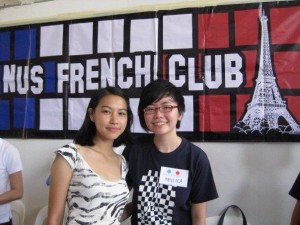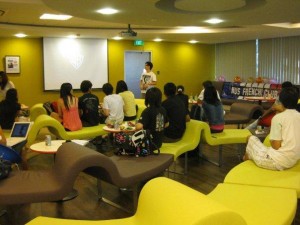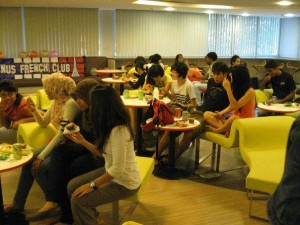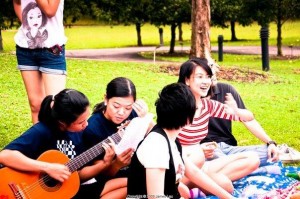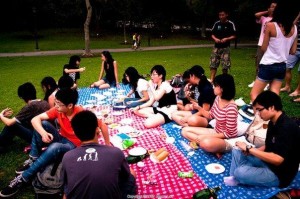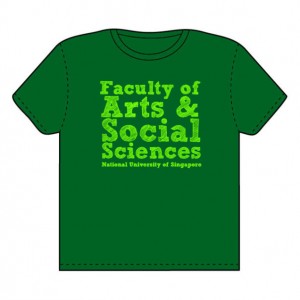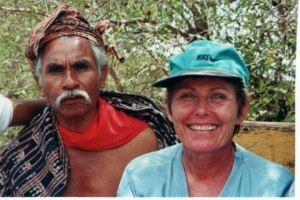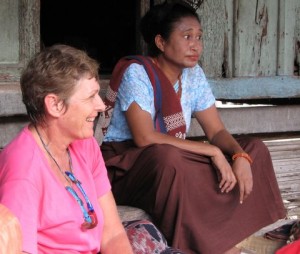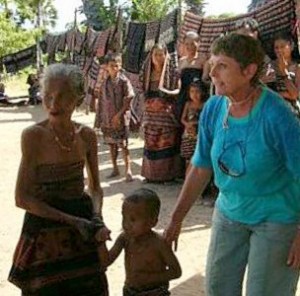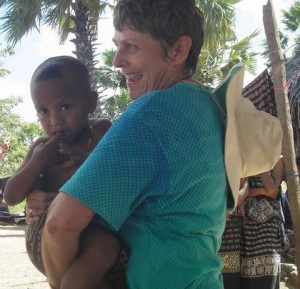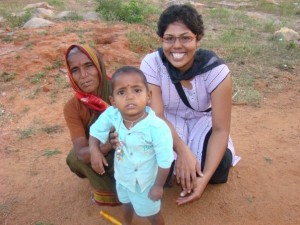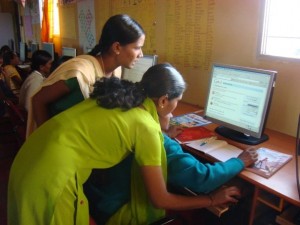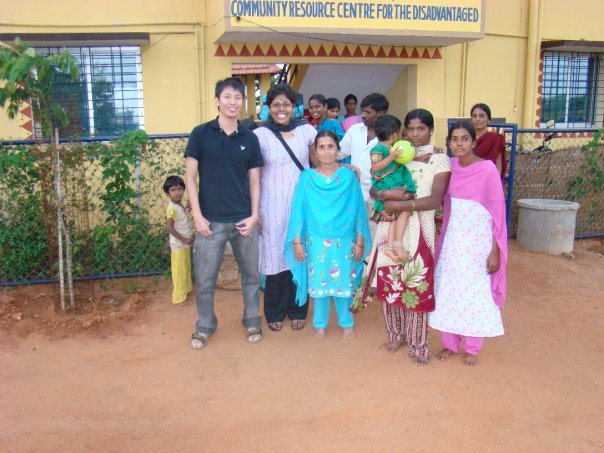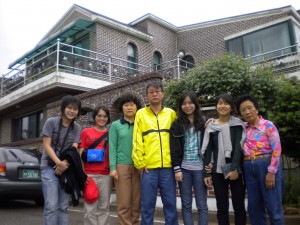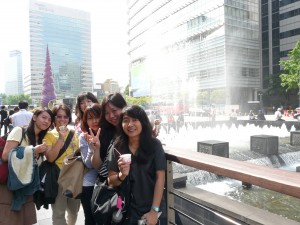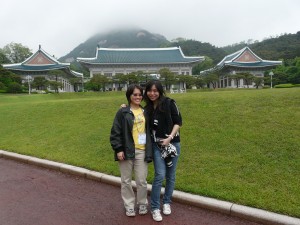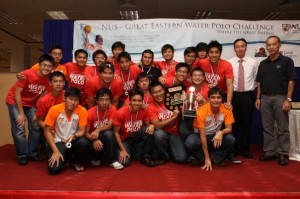by Student Blogger Ian Goh

Last Friday, on the 14th of May, nuSTUDIOS Film Productions held its annual Script Market + Script Writing Workshops for potential and aspiring filmmakers in NUS. nuSTUDIO members gathered at the Activity Room in the NUS Centre For the Arts (CFA) to present their movie ideas to a group of NUS students.
Kicking off this year’s event, Audrey Chua, Screenwriting Head for nuSTUDIO’s EXCO, welcomed the new writers, stating that the whole concept behind Script Market was literally that – to provide a ‘marketplace’ for NUS students to ‘pitch’ their movie ideas to directors, producers, and other crew members, with the intention of creating teams to actually work on their film-projects.
The concept of ‘pitching’ is common practice in the film industry, especially in Hollywood. In many cases, screenwriters often have five to ten minutes to present their stories to studio executives, (think Warner Brothers or 20th Century Fox) convincing them to invest in the project. With Script Market, pitchers had to do something similar. The atmosphere, however, could not be more relaxed and informal, with both the presenters and audience members frequently engaging in lively discussion with one another.
(Stills from Screenwriting Workshop with Director Wilson Yip)
Over the next three hours, over four scripts were presented to the audience members, with the scriptwriters having to state their loglines (movies summarised into single sentences), the plot/story outlines, as well as the main characters in their stories. This was then followed by a Q&A and feedback session with the audience, where the scriptwriters were then given advice on how to improve their stories in the long run.
Vamsi Khrisna, an NUS graduate student, pitched more than one screenplay idea to the members in attendance. His story ‘The Virtuous Path’ was about a gangster trying to come to terms with falling in love with a girl who’s very much unlike himself. Among his other pitches included a story about religious extremism and tolerance, which gathered much interest from the audience. Lastly, his final pitch was a quaint story about how two ordinary Singaporeans decide one day to don super-hero costumes and fight injustice on the streets of Singapore. When questioned about its similarities with the recent Hollywood movie, ‘Kickass’, Vamsi grinned and replied, “But I came up with the idea first.”
However, the final decision of whether a script goes into production rests upon the nuSTUDIOS Executive Committee as a whole. President of the CCA, Fang Xuezheng, highlighted the importance of the screenwriting process: “It starts with the script. That’s why an event like Script Market is important. Traditionally, we would just send out a general call for screenplays. This year however, we decided to invite them down and share their stories with us. We wanted to invite NUS students to make a movie with us.”
Overall, the event was meaningful and a success, with many people expressing interest in developing the screenwriters’ ideas into more concrete plans: completing their full-length scripts, and finally attaching directors to their projects. The participants left feeling encouraged by the responses to their ideas, and looking forward to the day where they see a director barking orders into a bullhorn, to actors scrambling to their positions, all the while referring to a bunch of papers in their hands for instructions – the same bunch of papers they once wrote.

nuSTUDIOS is constantly on the look-out for potential ideas for movies. Its most recent production, Durian Complex, was screened as part of the NUS Arts Festival in March this year, garnering favourable responses. Upcoming projects include collaborations with local music artistes, considerations for a ‘Singapore, I Love You’ project, as well as numerous other short film productions.
If you think that you have an idea that is original, local, and entertaining, do consider contacting the team further on their website: http://www.nustudios.org/


